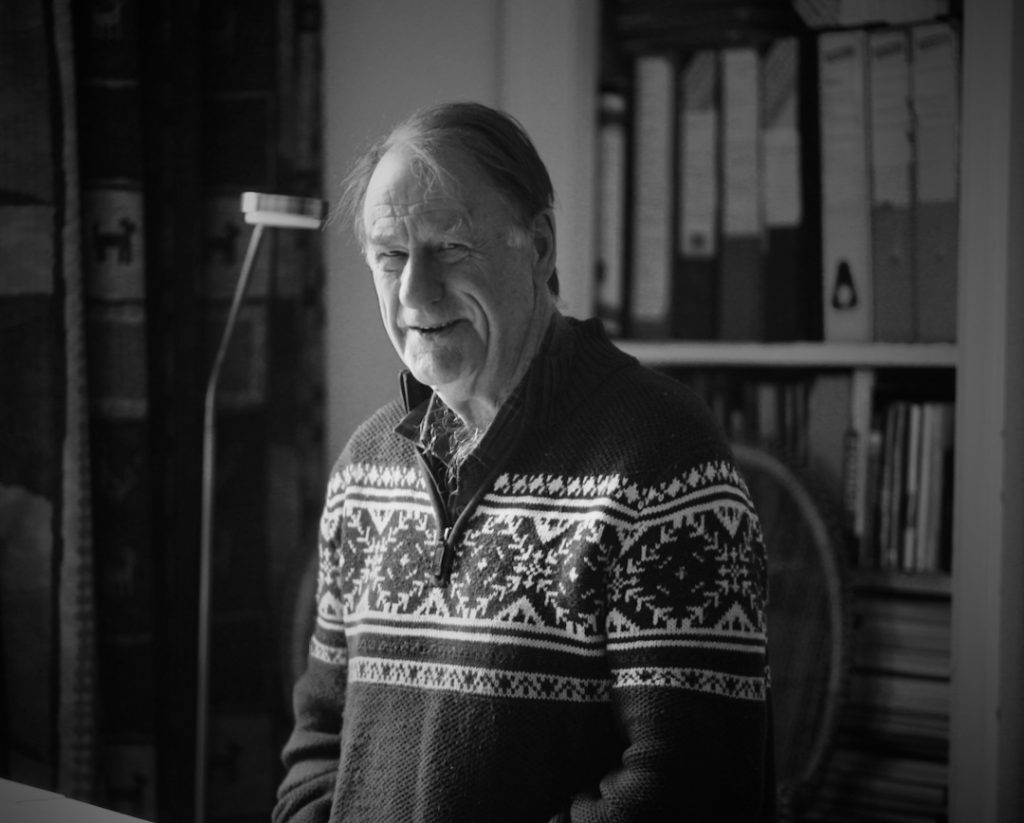“How do we think differently about generations?”
Tim Ingold
“How do we think differently about generations?”
Tim Ingold
Professor of anthropology

Join Our Mailing List
Sign up below and we'll send you occasional updates,
KP Tim Ingold, thank you so much for joining me today on the podcast. As you know the theme of this program is to take a question from ah a thinker someone who’s been steeped in in various kinds of learning and experience and try and unpack that. So if we begin there Tim, I know there’s a number of questions that you you have kind of been driven by throughout your career, but what question do you think it’s particularly important for us to be asking ourselves in this moment?
TI Well, the one that is presently at the top of my head concerns is the way we think about the passage of human generations. I’m convinced that much of our anxiety about the future and our apparent inability to cope with it or address it. In a hopeful way stems from the way in which we think about human generations and how they replace one another, and I’m trying to develop a different way of thinking about it which is perhaps more in tune with the thinking of both people in our societies in the past and also very often of non-western or indigenous societies around the world.
KP That’s a very rich question, I suppose could we could we start by unpacking how you how you think we’re perceiving of generations at the moment and why that’s problematic?
TI Yes I think the way we, (and meaning by we sort of modern urban dwellers in affluent western countries), we are tending to think of every generation as a layer as a stratum that occupies the stage for its particular slice of time and then when it’s done it gives way to another stratum which is placed on top of it, and then another stratum that is placed on top of that. So with that we tend to think of every generation as a layer, each going on top of the other one. So as to form a stack. So generations stack up and then we tend to suppose that that the vertical dimension of that stack is progress. So I think that that it will progress because every generation overwrites its predecessor, and in that sense represents an improvement on it, with the implication of course that the predecessors got it all wrong and the new generation gets it right. And that happens over and over again, and I’m trying to suggest that instead of thinking of the passage of generations as a stack, we draw on an analogy of a rope and imagine that generations rather than being layered on top of one another, are aligned longitudinly like the overlapping fibers of a rope that twist around one another. This allows rather than one generation replacing the previous one this allows generations to work together in collectively forging the conditions of collective life in the future and I do think that is usually throughout most of history that’s how futures have been made. Older people or younger people have worked together in co-creating a common future, and it’s really only in modern times that we split the old from the young so that the old are supposed to be past it, and the young are supposed to be being prepared for life in this generation, that the middle generations have decided what it’s going to be, and I think this splitting a part of the old from the young has contributed a lot to our contemporary sense of perpetual crisis.
KP Where do you think things changed historically where did we start having this idea of the the world makers in the middle and everybody else in the margins?
TI Yeah, it’s it’s difficult to put one’s finger on it. But I think it has a lot to do with the disappearance of domestic modes modes of production with the rise of capitalism and the industrial revolution. With that the transfer of educational functions from the family and the community to the state today. It’s assumed that the state is responsible ultimately for the education of its citizens and and that has become part of the major planks of of the contemporary nation state that it has this responsibility of education. If you think in the past I think back to to a typical agrarian or peasant society in the middle ages or whatever, you would find domestic units working together, producing very largely for their own subsistence and children. Being educated within the context of that everyday productive life. What’s happened now of course is that the household is a unit of consumption rather than production that production happens somewhere outside the domestic unit and the children go to be educated.
School which again is separated for the domestic unit. So there’s been a ah separation of educational functions from the constitutive relations of the family and that happened I think um maybe from. From the sixteenth seventeenth century onwards with the the rise of capitalism the formation of nation states the development of state education. All those things happening together. But as you think about the broad sweep of human history. This has been the exception rather than the rule.
There has been a delay in producing the rest of the transcription, it should appear here in the next few days.